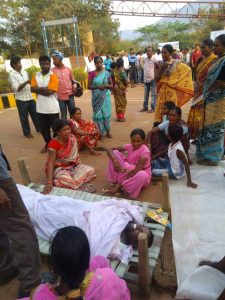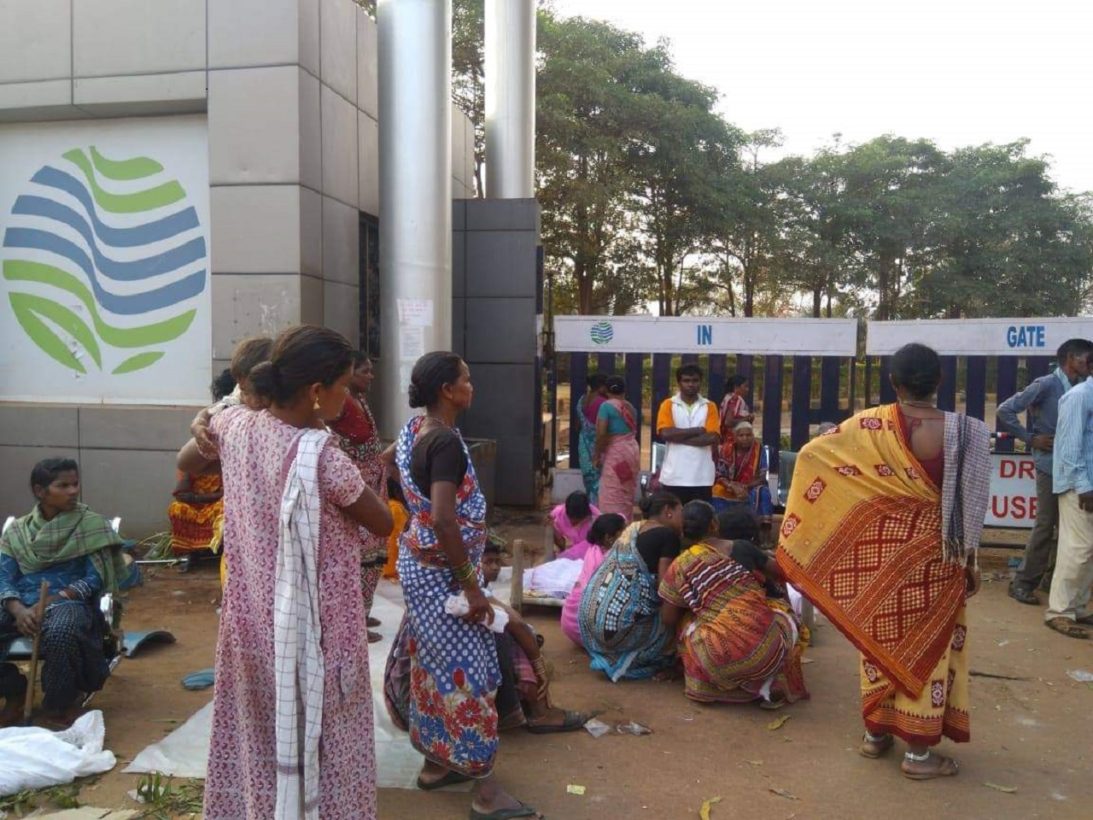On March 18, one activist was killed and many injured after security personnel deployed at the global mining giant Vedanta’s refinery in Lanjigarh in the Indian state of Odisha. Vedanta Limited is the Indian subsidiary of the British-based Vedanta Resources, owned by Anil Agarwal. The tribal population was protesting against the loss of livelihood and land due to mining operations by Vedanta at Lanjigarh, in the foothills of Niyamgiri. More than 9,000 Kondhs (Dongria and Kutia) who live in the region have long been opposing the mining activities in the hills.
Dani Batra, a Dalit-Ambedkarite activist, who tirelessly fought Vedanta’s injustice towards the people of Lanjigarh, was killed when Odisha Industrial Security Force (OISF) personnel violently attacked the protesters. “He had been at the forefront of protests against pollution and Vedanta’s atrocities against the displaced people and land losers of Lanjigarh. The private company and Odisha government are now trying to create confusion by blaming the violence on miscreants. They have announced a compensation amount of INR 25 lac for his death,” Surya, an independent filmmaker, who has extensively documented state-sponsored oppression against tribals in Niyamgiri, told Peoples Dispatch.

Tribals, especially the Dongria Kondh tribe, who consider Niyamgiri hills sacred, accused Vedanta of polluting the environment and putting the entire population of the area on high risk. The Adivasi (tribal) people of Niyamgiri have been demanding, since 2013, to declare the Niyamgiri hills as Dongria Kondh habitat as per the Forest Rights Act. They demand that the illegal factory be closed down, the paramilitary be withdrawn and all cases against Niyamgiri Suraksha Samiti activists be discarded. They also want the government to build schools and hospitals for the Adivasi people. Furthermore, they want the Lanjigarh area to be cleaned up as the refinery has caused a contamination of air, water and soil, as well as the company to pay damages for the health hazards it has caused to the people.
On March 6, tribal activist Lingaraj Azad, associated with Odisha’s anti-bauxite mining outfit, Niyamgiri Suraksha Samiti, was arrested on the charges of leading a protest demonstration in Cuttack district’s Trilochanpur village and having links with Maoist insurgents. His arrest triggered a wave of protests in the region. “His arrest came a few days after Bahujan Samaj Party and Niyamgiri Suraksha Samiti took out a joint rally against the Supreme Court order to evict Adivasi people from forest lands if their Forest Reserve Act claims were rejected. So, clearly, the government is afraid of an Ambedkarite uprising in the Niyamgiri region. Azad’s arrest will lead to isolation of Dongria Kondh activists, and the forcefully and illegally established CRPF camp in Trilochanpur Panchayat office can continue to exist,” Surya stated.
According to several rights groups, the state government is using force against indigenous population to stop them from activism in the region, weeks before the Indian general elections. Azad was released on March 11, after different tribal activists based in Niyamgiri condemned the government’s decision to arrest him.
A number of supporters of Niyamgiri people’s movement against the corporate exploitation gathered outside the Odisha Bhawan in the national capital, New Delhi, demanding the right to protest and release of activists. In the past, Odisha police had filed a similar charge against Azad for leading a protest outside the Vedanta alumina refinery in the foothills of Niyamgiri. He was remanded in judicial custody after being produced in a court at Bhawanipatna in April 2017.
Several tribal activists defending the rights of marginalized tribes in Odisha have been arrested on charges of having connections with insurgent groups. The arrests intensified when the Union Home Ministry, in its April 2017 annual report, linked the Niyamgiri Suraksha Samiti with armed Maoist movement. “In Niyamgiri Hills areas, the outfit (Maoists) continued to guide the activities of the Niyamgiri Suraksha Samiti,” read the report. This statement released by the ministry was rejected and termed baseless by environmental and social activists across the country.
However, after the report was released, 20-year-old Kuni Sikaka, who is a relative of the co-convenor of Niyamgiri Suraksha Samiti, was arrested in May 2017. Before that, activist Haribandhu Kadraka, a member of the All India Kisan Mazdoor Sabha (an organization working for the land rights of tribals) was arrested in 2014. Both were accused of being Maoist insurgents.
Niyamgiri Activists’ Opposition to Bauxite Mining
The inhabitants of Niyamgiri are the Dongria Kondh people, who are settled in almost 112 villages across the Rayagada and Kalahandi districts of the state. They have been struggling for over a decade now. Ever since the mining company, Vedanta Resources, attempted to extract around 80 million tons of bauxite deposits from the hills, costing around USD 2 billion, the entire Niyamgiri belt has remained on edge, witnessing a number of indigenous people’s movements which the state apparatus has continued to suppress.
The state-owned Odisha Mining Corporation was supposed to provide the bauxite extract, obtained from the Niyamgiri hills, to the Vedanta refinery. But when the Supreme Court ruling, in April 2013, said that the village councils should decide whether the state-owned mining corporation could mine the hills for the bauxite or not, all the village councils voted against the mining process.
According to reports, Vedanta admitted that it would participate in auctions of new bauxite mines in Odisha. Despite obtaining environmental clearance and other clearances to expand the capacity of the refinery to produce 6 million tons of aluminum a year, the company has been aiming at the large-scale bauxite reserves in Niyamgiri hills.
The company has, so far, spent more than USD 9 billion to build the refinery and an aluminum smelter in Odisha, which reportedly has 70% of India’s total bauxite reserves.





